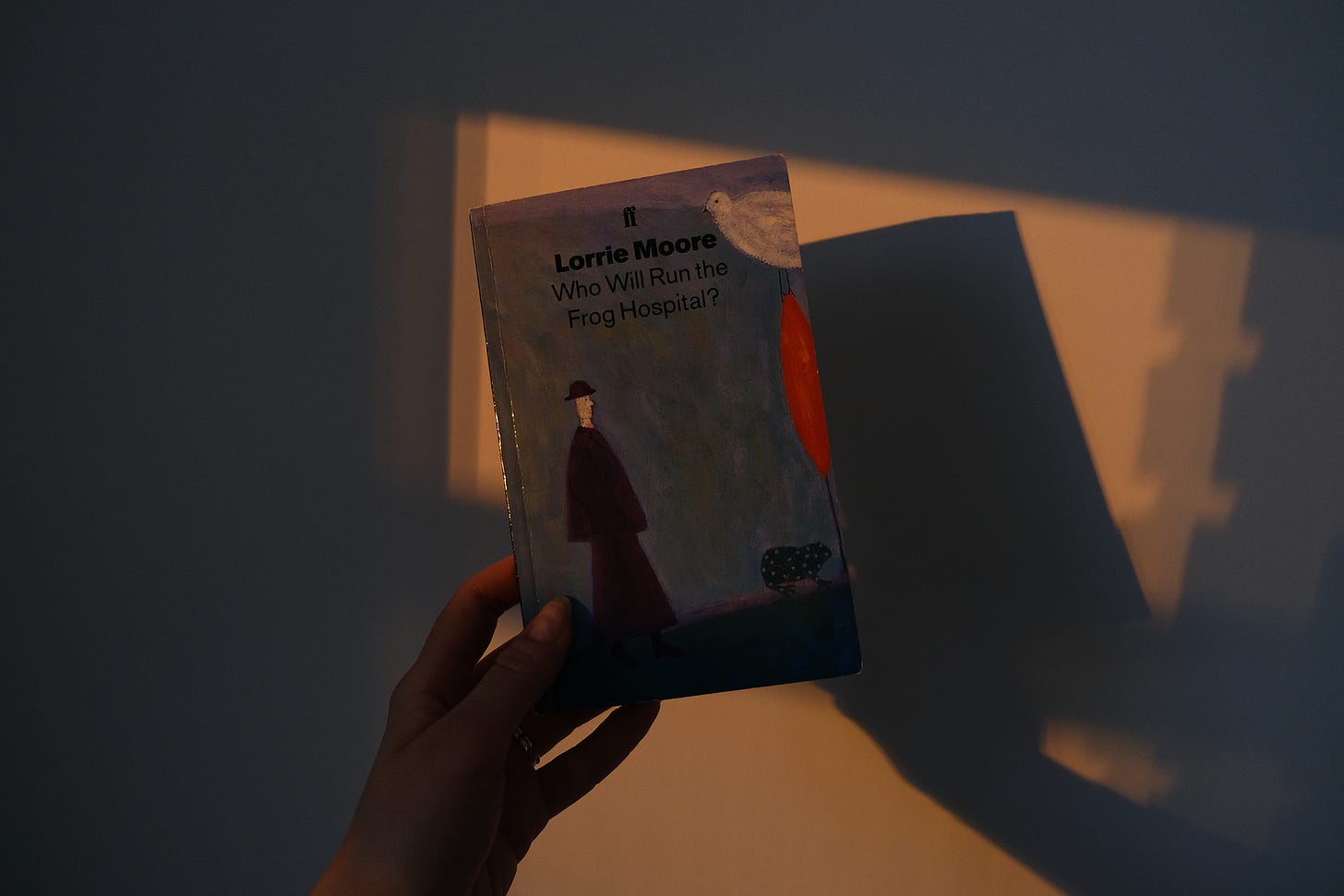je lis trop: the cafeteria
may essay on loud teenagers and pastries, cafeteria women, dark rocks, Parisian interludes, and Q&A
How does it feel to go from one day to the next selling pastries to loud-mouthed teenagers with rusty coins in their hands? I thought of this last week when I, for no clear reason, remembered a woman who worked in my school's cafeteria. She always stood behind the metal trays of food and operated the cash register without looking.
More than her face, I remember her posture and sarcasm. I don't remember her name, and I don't know if I knew it back then. She had a few colleagues, too—maybe four or five women were selling chocolate buns, cinnamon rolls, and pasta with a Bolognese sauce. Like many other children, I didn't consider them outside the cafeteria, couldn't see them leading a life out there, and didn't think for a second that they had any hobbies or concerns. It's scary how we saw adults. They were a crowd of one-dimensional decision-takers, and this woman was part of the crowd, too, imprisoned in a soft, warm, cinnamon cafeteria.
I viewed her strong posture and sarcastic remarks as fixed personality features. Now, I think the posture and remarks could've been her response to her routine of selling pastries to loud-mouthed teenagers. They likely got on her nerves. As a primary schooler, I was afraid of those kids. I tried to avoid them in any way I could, dodging them in the hallways and keeping my head down. While I was writing these lines, a quieter moment started blinking in my memory: If I went to the cafeteria during a downtime, during the first or second break of the day (which fell between 9 and 11 a.m.), her expression had none of the hardness or suspiciousness that the crowds usually faced. She would look at me patiently, as if curious to find out what I wanted to buy.
One reason for these flashbacks could be that I'm reading a nostalgia-infused book, Within a Budding Grove (À l'ombre des jeunes filles en fleurs), the second installment in Search of Lost Time, by Marcel Proust. Reading a dense book such as this, I started turning over memories, looking for the hidden lives of people who were once semi-permanent figures in my days, such as that lady from the cafeteria. When I was reading the first book, Swann's Way, it pulled me to explore my childhood's most intimate nuances, such as my relationship with my parents and some places I used to spend my time in. This time, something more distant and unlikely hooked me, people and the places I hadn't thought about in years.
I am writing about this book for other reasons, too. I hope that giving it attention here will help me muster the strength to continue with it. 312 pages in, I don’t feel entirely comfortable. I peek at the story as if I were outside, looking through windows at the flickering treasure within. I’m moving at a snail’s pace, absorbing the information buried in endless sentences. Right now, I am frustrated by the protagonist’s mixed letters to Gilberte, which I find hopeful but also self-defeating, weighed down with ulterior motives. And I am pulled in by the lengthy, sensuous descriptions of Odette’s (Gilberte’s mother’s) mannerisms and wardrobe. Silk, buttons, salons. Even material possessions are described in ways that examine the human soul.
At the other end of the spectrum of Proust's serpentine intricacy, we have Fleur Jaeggy and her collection of short stories, I Am the Brother of XX. It is a supremely dark book. I moved slowly with it, too: not at a snail's pace, technically, because I didn't want to get lost in Jaeggy's landscapes or spend more time there than I needed to, but rather adopting a cautious step. How could these stories, some merely four or five pages long, leave me so unsettled? I understand how the slow simmering of well-developed stories can lead to explosions. Yet, I find it even more incredible when short stories, despite their modest length, despite the fact that some of them are merely outlines or vignettes, can achieve the same.
As unlikely as it is to find connections between Proust and Jaeggy, I want to mention this: She also pays attention to aesthetic qualities but doesn't expand on them as Proust would. She offers tiny pictures instead: "The light of the green cupola spreads enameled reflections on objects", or "Our colors, those of the clothes and our complexions, next to the gray slightly dark rocks, made a nice little picture." Hers is the world of portraits, angels, clocks, white canes, boarding schools, alienation, and sometimes malice lurking in the hands of one girl who, at the end of the story, will burn the whole house down.
With the cafeteria returning to my memory, other ideas rose their heads. They were prompted by Lorrie Moore's Who Will Run the Frog Hospital? The novel starts with a woman named Berie eating in Paris with her husband. (A nice coincidence—Proust is mentioned on the first page: "I'm hoping for something Proustian, all that forgotten childhood.") Throughout her time in the city, waking each morning to the coo of the pigeons, walking in the gardens and museums, Berie remembers her childhood friend Sils. She goes over their adventures, misadventures, and secrets. Presented through Berie's adult perspective, people and events from the past seem fragile, as if from another world. That world is no longer possible.
Berie’s friendship with Sils is the main reason for Berie telling her story. Yet, I feel that Berie also documents the loss of ambition or joy of some kind. That’s why I was even more interested in her Parisian interludes than the main story. She says she feels safe but adds: "My blood travels no new routes, simply knows its way, lingers, grows drowsy and fond." What's the difference between supportive safety and the safety that muddles one's mind, takes away the spark, and colors each passing day in grey? Berie wants adventure, wants to escape, but that won't happen. I don't associate the transition to adulthood with the loss of adventure or freedom; quite the contrary. But reading about Berie, I wondered when and why ambition and joy are squashed. What decisions lead there? How do I stay alert? What should I look out for?
Over the past years, I've read a handful of books exploring the topic of childhood friendships and their dynamics, especially among girls. Moore's book is different. It is a story told reliably, with no exaggerated nostalgia or sweetness, only the bare memories of the years long past. That indescribable sense of the time lost characterizes this book and fits within the Proustian world, even if the style is entirely different. And my cafeteria memory also falls within the nostalgic, tender world I conjured while reading Moore's novel.
The rise of childhood memories. Putting a spell on myself to finish a book. Orienting in changes. These are some of this month's puzzle pieces, only a fraction of what's going on. Amidst fiction books, which sometimes remove me too far from everyday life, I enjoy picking something else to change the landscape. I take The Paris Review Interviews, 1. Its soft yellow cover is fading, becoming paler and paler, even though I've been protecting it against direct sunlight. Which, once again, reminds me of how time passes. The first volume includes interviews with Dorothy Parker, Truman Capote, and Jorge Luis Borges, to name a few. I'm not a fan of Ernest Hemingway, but his interview is one of my favorites. I enjoy interviews. At this time, I am rediscovering my place within the genre. Having written countless interviews, I feel there's only a certain kind of conversation I want to lead from now on. And it’s in the works.







This is so beautifully written Monika 💗